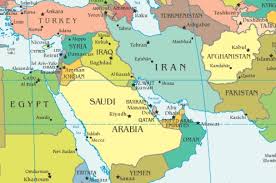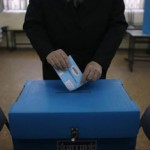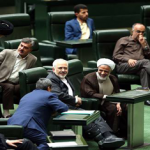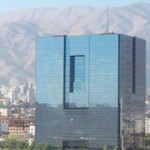Trump Victory Causes ‘Serious Concerns’ in Middle East

Many worry about his attitude toward Muslims, while regional strongmen embrace his apparent attitude toward human rights
Donald Trump’s election generated concern in the Middle East over his stance on Muslims and immigrants as well as uncertainty about how the president-elect will navigate the tangled web of regional alliances and execute the policy objectives he has set out.
Mr. Trump has said he opposes the hard-fought deal to rein in Iran’s nuclear program that President Barack Obama negotiated. But he has also promised to improve Washington’s relations with Moscow, a major ally of Tehran.
The Republican party leader promised to work with Middle East allies to defeat Islamic State. But in the same breath, he berated Saudi Arabia—a key member of the U.S.-led alliance fighting the terror group.
Iranian President Hassan Rouhani said after the vote that the nuclear deal was irreversible as it was negotiated with several countries and endorsed by a United Nations Security Council vote.
“The U.S. elections result will not have any impact on the Islamic Republic’s policies,” Mr. Rouhani said in comments carried by state television. “Today, the U.S. is definitely not more capable than before…of creating global consensus against Iran.”
Traditional U.S. allies in the region criticized President Obama for enabling Iran and Russia to pursue their regional agendas more aggressively over the last eight years and don’t want to see Mr. Trump continue those policies.
Israel, a chief opponent of the Iran nuclear deal, sounded upbeat about the election after years of tension with Obama’s administration.
Prime Minister Benjamin Netanyahu praised Mr. Trump as “a true friend” of Israel.
The two discussed regional issues by phone, according to a statement on the Israeli leader’s official web site. Mr. Trump invited Mr. Netanyahu to a meeting in the U.S. “at the first opportunity,” it said.
A Trump campaign official said the president-elect spoke Wednesday with Mr. Netanyahu, but wouldn’t provide detail about the conversation.
Mohammed Alyahya, a Saudi political analyst and nonresident fellow at the Atlantic Council, said Mr. Trump could do a better job than President Obama at reinforcing relationships with allies.
“Obama neglected his allies and foolishly invested in enemies,” he said.
Mr. Trump has said he would mend ties with Russia, which is solidly allied to Iran. But Iran is locked in a regional power struggle with traditional U.S. ally Saudi Arabia.
Both Russia and Iran are currently fighting in Syria to prop up the Damascus regime that Gulf states bitterly oppose, leaving the incoming president a jumble of foreign policy agendas he will have to sort through.
Mr. Trump has lobbied against regime change in the Middle East, saying that would only add to instability. That stance would no doubt come as a relief in Damascus, the seat Syrian President Bashar al-Assad’s regime.
Mr. Trump’s talk of rolling back human rights has struck a positive tone with regional strongmen who have grown tired of the U.S. scolding them over their poor track records, such as Egyptian President Abdel Fattah Al Sisi. Mr. Trump has said he would reinstate torture during interrogations of suspected terrorists, tactics used by many Arab governments on liberal and conservative opposition activists alike to the condemnation of rights groups.
Mr. Sisi called Mr. Trump and expressed hope his election will “inject a new spirit into the trajectory of Egyptian-American relations.”
In Iraq, where the country’s U.S.-backed military is fighting to dislodge Islamic State from the city of Mosul, Prime Minister Haider al-Abadi praised the president-elect for continuing to prioritize the war against the extremists.
“We are looking forward to seeing the world and the United States of America standing by Iraq in facing terrorism.”
Ordinary people in the Muslim-majority region remain unnerved by Mr. Trump’s harsh comments on Islam. The candidate has vowed to temporarily suspend Muslims from immigrating to the U.S.
Some turned to dark humor to deal with those fears. A widely shared Facebook ad promoting Royal Jordanian airlines airfares to the U.S. quipped: “Just in case he wins…Travel to the U.S. while you are still allowed to.”
Source: WSJ – Trump Victory Causes ‘Serious Concerns’ in Middle East





























